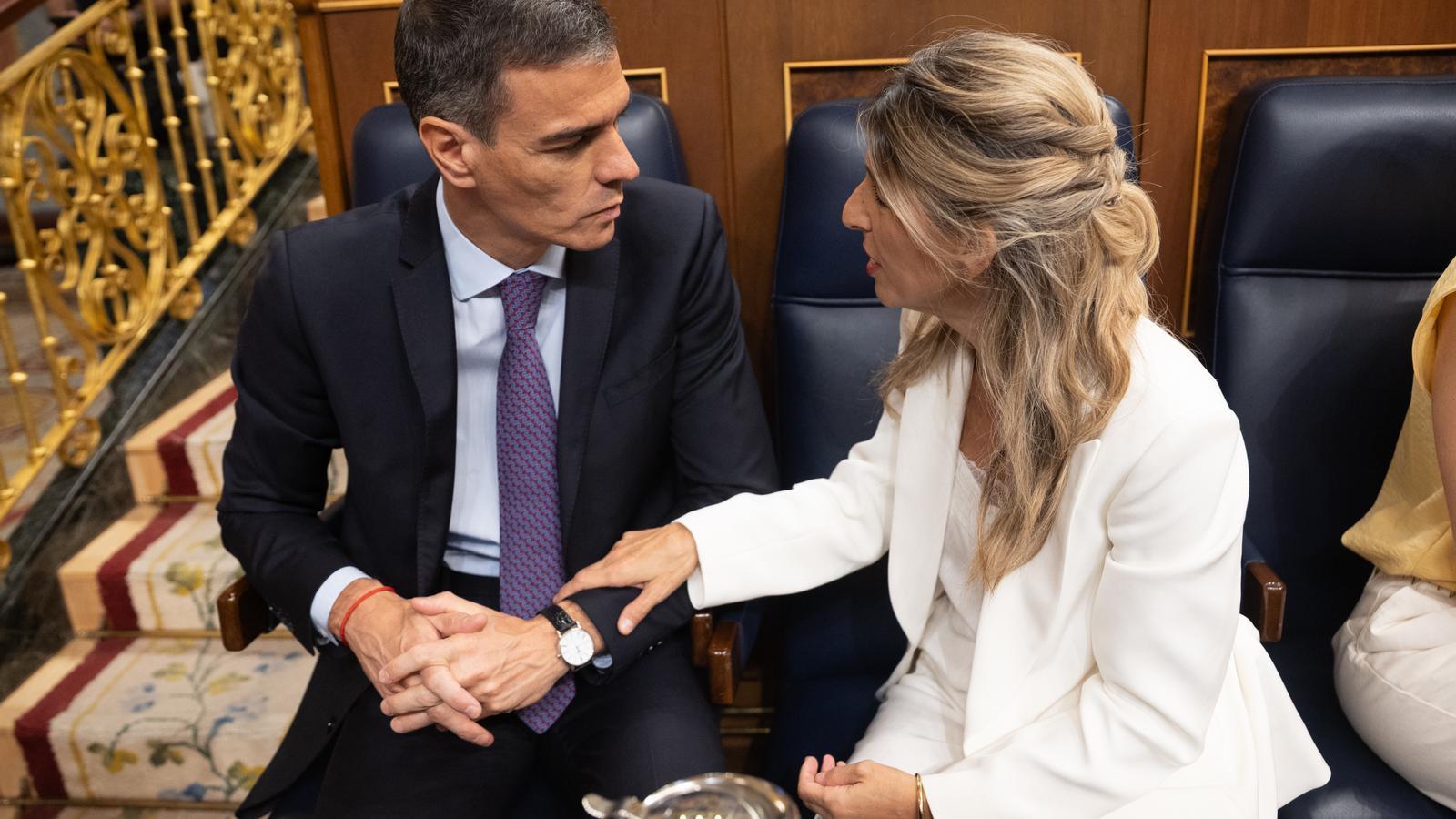The path to an immediate arms embargo on Israel that the Spanish government is reluctant to use
Despite being in favor of the initiative, the executive is betting on a reform in Congress that lengthens the timeframes

BarcelonaSince the start of Israel's current military offensive against Gaza, Palestinian organizations in Catalonia and the state have demanded that the Spanish government declare a total and immediate arms embargo on the Hebrew state to escalate international pressure against Benjamin Netanyahu's administration. For now, the situation remains unresolved. Only one reform has been initiated in the Congress of Deputies which wants to incorporate the embargo into Spanish law. Although Pedro Sánchez and Yolanda Díaz have pledged to approve it in September, the process until the embargo on Israel comes into effect could take weeks or months. However, there is a faster route that the Spanish government has not explored so far.
"The most effective way is through a decree law," argues Alys Samson, a member of the campaign. End of arms trade with IsraelThat is, the Spanish government must approve the embargo in a Council of Ministers through the means reserved for urgent matters. In this way, it would enter into force immediately. This is a feasible option, according to Joan Ridao, a legal expert in constitutional law, and is not incompatible with the fact that a law with a similar purpose is being processed in Congress. It would be enough for the executive to justify in the preamble of the text "the extraordinary urgency" and the "necessity" of the measure, as it must always do when approving a decree.
In recent weeks, pressure on Pedro Sánchez's government to accelerate the arms embargo has been increasing as Israel has crossed red lines, day in and day out, in its offensive in Palestine. Podemos and some members of Comuns, such as Gerardo Pisarello, have asked the executive to approve it via decree, and ERC has demanded that Sánchez promote a total embargo to the EU.
Despite not implementing it, the Spanish government has so far shown itself to be in favor of the embargo. Defense Minister Margarita Robles and Spanish Prime Minister Pedro Sánchez have repeatedly insisted that Spain has not sold weapons to Israel since the start of the current offensive on Gaza. However, these claims were refuted by an investigation by the Delàs Center and Eldiario.es. The study showed that Spain had authorized the shipment of ammunition to Israel after announcing it would not do so, despite the fact that an EU common position requires it to deny export licenses in the event of serious violations of humanitarian law.
How can the embargo be?
For Palestinian advocacy organizations, it is important that the embargo not only be immediate but also total. That is, "put an end to all arms imports and exports, all trafficking in defense material, and all types of military cooperation with Israel," explains Samson, who emphasizes that it is a more ambitious measure than to what Germany announced a week ago. "Although it is incredibly late and this complicity will never be forgotten, we still have to prevent many more Palestinian deaths. An embargo works and we need it to be implemented immediately," Samson claims.
If the executive branch does not act via decree, the terms under which an embargo can be implemented are those established by the law currently in progress in Congress. The reform, presented by Sumar, ERC and the mixed group in July 2024, was not admitted for processing until May of this year. This text establishes that the Spanish state will prohibit the trade in arms—but also in fuel for aircraft or tanks, or police equipment—in an "automatic, immediate and indefinite manner," both in the public and private sectors, with those states that are investigated before an international tribunal for, among other reasons, committing genocide. And in this case, the case of Israel is foremost, following the complaint filed by South Africa with the International Court of Justice.
